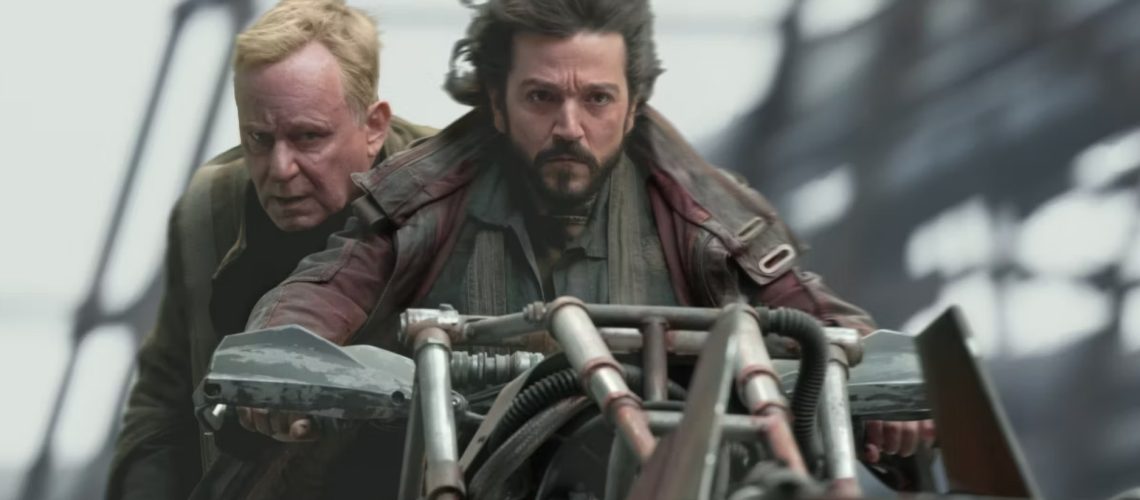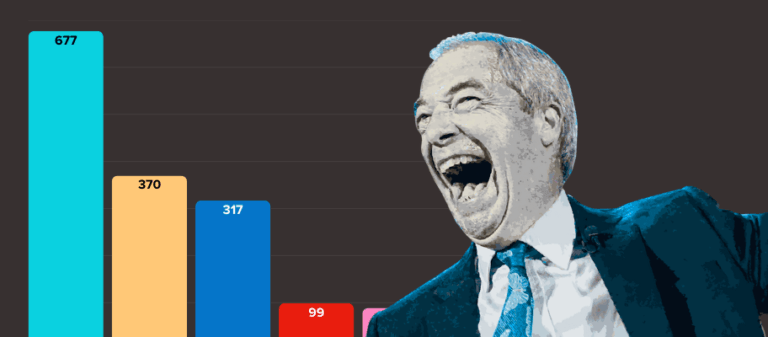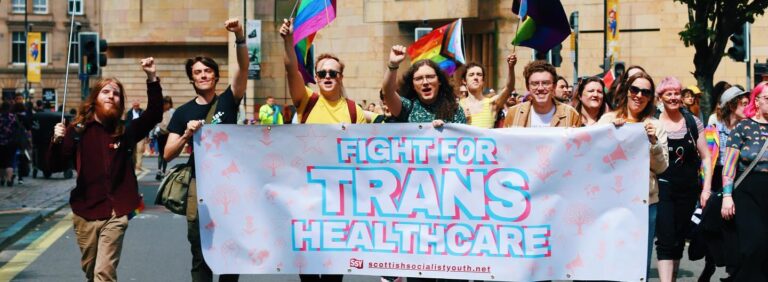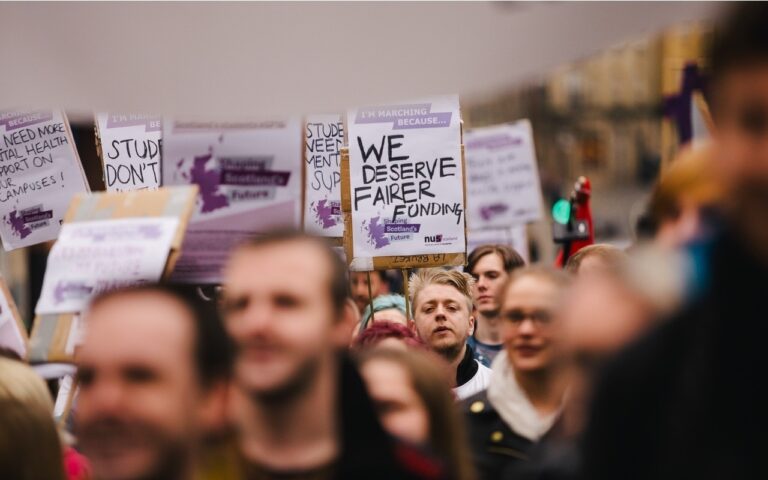Star Wars has a special place in my heart, it’s a franchise that will never truly grow old. Yet understandably other people are switching off in the face of an endless conveyor belt of content from the galaxy far far away.
The Mandalorian was quality. In its best moments, it touched our hearts and barely relied upon other entries to the Star Wars story. At its worst, it still had enjoyable fan service. The Book Of Boba Fett, however, was lacklustre, and Kenobi was a disappointment.
The best parts of Star Wars are the human stories, albeit not always told through human characters. Sociological storytelling depicting the rise of Empire, the imperial system that it draws its power from and the people fighting against it are, to no surprise, of great interest to us socialists. So it’s no surprise that Andor was good.
But Andor wasn’t simply good. It was spellbinding.
Star Wars VIII: “The Last Jedi” was criticised intensely (and in my opinion, wrongly). The story that The Last Jedi told — of the complexities of leadership and the vulnerability of men — wasn’t pulled off in a way that was satisfying for a lot of people. Two years prior, The Force Awakens had teased fans and casual enjoyers alike with a fast paced variety of brand new planets, aliens and bad guys, making the comparatively slow moving plotline of The Last Jedi land with even more of a shock.
Like The Last Jedi, Andor takes its time. It portrays a small part of the Star Wars universe and it doesn’t rush the viewer into the classic action sequences that we’ve come to expect from Star Wars. However, it pulls this off perfectly by tying every moment of the show into a coherent story structure that feels truly part of a grand vision.
The show pitches a new perspective on The Rebellion. Traditionally, rebels in the Star Wars universe have been simple partisans, interested in vaguely defined freedom. In Andor we find nuance. The handsome Diego Luna’s eponymous hero, Cassian Andor, guides viewers through four connected story arcs, showing us four different stories of rebellion.
The show tests how far its characters will go for what they believe in in a way that Star Wars never has done before. There are rebels with colourful visions of liberation and lasting peace. There are rebels who are fuelled by revenge against the system that hurt them so badly. There are rebels who are fighting for their lives. And there are rebels who are only in the fight for selfish interests.
Stellan Skarsgård’s performance as the rebel leader Luthen Rael is particularly memorable. In a Star Wars first we see the light-side mirror image of the cunning mastermind, Chancellor Palpatine.
We don’t just get a closer look at the good guys either. Andor is one of the first projects to properly explore the Imperial state apparatus and its surveillance of rebel activity. Denise Gough plays the Imperial Security Bureau (ISB) agent, Dedra Meerow. Through Meerow, we get fascinating scenes of Imperial deliberation and follow her methodical hunt for rebel activity.
Watching only the Star Wars films and cartoons, you never truly get an appreciation of the scale of the Imperial bureaucracy, only its firepower. The films generally focus on the stories of our heroes, and rarely on the social systems that they exist within. The animated shows are even less political, often giving the bad guys one motivation only — being evil for evil’s sake.
Much like the once living examples of fascism in Europe, the Galactic Empire is built atop the failures of a liberal democracy, bending the definitions of safety and competent governance to justify their methodical control over public life.
The most recent trilogy couldn’t decide the story it wanted to tell, pitching a Lidl’s own-brand version of the Galactic Empire as its antagonist. By comparison, Andor puts thought into the fascist power structures that allow the Galactic Empire to rapidly expand and maintain its control over the stars. It’s clear what they’re building towards, and the sense of powerlessness that galactic citizens have in stopping it is tangible.
We also get a look at the economic system that supports the Empire. We meet trigger happy corporate security staff, itching to be the next Imperial Governor, and Imperial controlled systems that have been deemed too valuable or too unruly for self-governance.
The show doesn’t shy away from the politics of empire and imperialism. We get a storyline based off of Scotland’s Highland Clearances. We see violent imperialist repression and indigenous resistance akin to the conflicts seen over and over between the Israeli occupation forces and Palestinian civilians. But we also get to peer into the imperial core — seeing what Coruscant — once the home of the Jedi — has become since the Emperor took power. And for the most part, it doesn’t look much different.
I was particularly captivated by the prisons of Narkina 5. The Imperial prison industrial complex holds clear parallels to the concentration camps of Nazi Germany which were used to push forward the V2 missile program with slave labour (see: Camp Dora). This even further deepens the link between the Empire and Nazi Facism, which in the Original Trilogy was mostly confined to aesthetics. Though it has to be said that the Galactic Empire is far more humane than the Nazis ever were.
But other Star Wars entries have succeeded in some of these areas before — what makes Andor so special?
Of course, the level of detail dedicated to its characters and backstory help, but what really powers this series is its patience.
Andor doesn’t spoon-feed its audience. Its story is weaved through the conversations characters have with each other. Not a word is wasted, and the characters rarely spend time explaining to the audience what is happening (see: exposition in film and TV). You can tell that every line was carefully chosen and as a result each character is rich in personality. Even the cast members who only show up once or twice in the entire show don’t feel shallow or underdeveloped.
The time saved from cutting less relevant dialogue is spent following the lives of the people who live on each planet we visit. Ferrix, the home of Cassian Andor, feels like a real place. You see people working in a variety of places. You see where and how they live. You get an idea for the kind of relationships that exist in the settlement. But most importantly of all, you get to see its culture, and what this culture means to everybody who lives there.
Compare this to scenes from the new trilogy. Sure, there are moments of world-building, but rarely is time taken to expand on these ideas, and often the films fall back on exposition to explain to the audience what is happening. The prequel trilogy was arguably worse for this, as it usually didn’t even try to breathe life into its settings, let alone in a clever way (remember that bizarre place where Obi-Wan and Qui-Gon fought Darth Maul?)
Admittedly, Andor has the benefit of its own space. It doesn’t need to lead directly on from anything, and it also doesn’t need to lead directly into something. It has the rough end point of Rogue One in the grander scale, but since some of the same writers are behind this series, there’s not much pressure. It can afford to take its time.
Yet, I am certain when I say that this TV series is the best entry to the Star Wars story since Empire Strikes Back.
Perhaps future Star Wars projects, indeed like Rian Johnson’s rumoured trilogy, unconnected to the current saga, will realise that a greater distance from pre-established stories is required to keep visions from becoming tangled.






